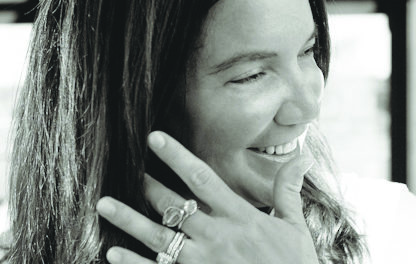Last Sunday, my husband and I drove to Bluffton to take part in the great American cinematic event known as “Barbenheimer.”
We saw Barbie in the morning and Oppenheimer in the afternoon, with a palate cleanser of Mexican food in between. Later, at a cocktail party – yes, it was a long day – somebody asked Jeff which movie he’d preferred.
“They’re both great, but I’m tempted to give the slight edge to Barbie,” he replied, surprising his interlocutor… and his wife.
My husband is an Army brat/history buff/science nerd who doesn’t like pink and really doesn’t like musicals, yet here he was voting for Barbie over Oppie.
That’s just how good this movie is, y’all. At least we thought so, anyway.
I always avoid reading movie reviews until after I’ve seen the movie – at which time I devour them by the dozen, like donuts – so I was unaware, when I saw it, that Barbie had already ignited a firestorm of controversy. By the time you read this, that buzz will surely have subsided, hopefully along with the Jason Aldean “Try that in a Small Town” brouhaha and whatever other petty distraction we’ve all been sucked into between now and then.
But today, as I write, Ben Shapiro is burning Barbies on YouTube – calling the film “the wokest movie I’ve ever seen” – and other conservative critics are labeling the film a “feminist screed,” which is about the nicest thing they’re calling it.
I think they have lost their collective mind.
First, can I just say how strange it is to hear Barbie accused of “feminism” – the horror! – after all these decades of hearing her disparaged by feminists for her unrealistic proportions and exaggerated features that supposedly make young girls feel bad about themselves?
(Incidentally, my Barbies never made me feel bad about myself. But that’s only because there were so many real live girls doing the honors – not intentionally, mind you, but simply by existing in far less awkward bodies than my own.)
While Barbie definitely has a Girl Power vibe, these angry labels like “feminist screed,” “wokest movie ever,” and “man-hating diatribe” suggest to me that some people just don’t get it. And I wonder if they really want to.
(Warning: Continue reading at your own risk. Spoilers ahead.)
For starters, I believe these critics are taking Barbieland – a garish pink confection where Barbies reign supreme in their dream houses and Kens are merely cute accessories – way too seriously, as if writer/director Greta Gerwig were offering it up as her “ideal society,” instead of spoofing the entire Barbie ethos. Barbieland is not a serious proposal. It’s a joke. It’s shallow, ridiculous, and absolutely hilarious. It’s the figment of a little girl’s imagination, which is where Barbie lives and has always lived.
The movie’s detractors are taking the Barbies too seriously, too. Despite being played by humans, these are dolls. Their actions are the actions of dolls. Their perceptions, the perceptions of dolls. When Barbie and Ken travel to the “real world” – where Barbie is stunned to learn that women don’t rule, and Ken is dazzled by something called “patriarchy” – we are seeing through the childish eyes of Barbie dolls. Not 21st century adults. And not Greta Gerwig.
There are multiple levels of satire going on here. Yes, the patriarchy is being parodied; but so are people who overuse terms like “patriarchy.” Barbie is a sophisticated film. (There, I said it.) And in a media landscape that rewards critics for staying in their ideological lanes, it’s not surprising that some are missing the point, willfully or otherwise.
So, what is the point? Among all these layers of glittery pink satire, where does writer/director Gerwig take a sincere stand? Or does she?
I believe she does, and I think it happens in the “real world.” Barbie must travel there to learn why she’s suddenly having “irrepressible thoughts of death” – and cellulite. In the real world, she meets Mattel employee Gloria and her slouchy, pseudo-intellectual tween daughter, Sasha.
It seems our Barbie’s troubles stem from the fact that Gloria has been playing with Sasha’s old Barbie dolls – out of nostalgia and longing for a little girl who is no more.
What mother of daughters hasn’t been there?
I vividly remember when my own daughter turned eleven. Suddenly, the sweet child who thought I’d hung the moon, and begged me to sleep with her every night, was shutting her bedroom door firmly in my face . . . when she wasn’t rolling her eyes or sassing me. It felt like a death. I think I was in mourning for about a year while our new relationship slowly emerged.
This is the loss Gloria is suffering in Barbie, as Sasha struggles with her own coming of age, often sounding more like a morose Women’s Studies professor than a young girl just starting to think about the complex world she lives in.
Again, I do not believe Greta Gerwig is endorsing mouthy, self-satisfied, 11-year-old cynics. If she were, she’d have left Sasha in that mode – and estranged from her mother – but that’s not what happens in this story. Instead, the pair go on a heroic adventure together, Sasha softens, and Gloria talks honestly with her about life and all its messy beauty. No longer treating her daughter like a child, she treats her to the soliloquy that had me, and other women I’ve spoken to, softly crying in a dark theater.
Here is Gloria, telling her daughter and Barbie about the impossible standards women are expected to live up to in the real world:
… You have to be thin, but not too thin. And you can never say you want to be thin. You have to say you want to be healthy, but also you have to be thin. You have to have money, but you can’t ask for money because that’s crass. You have to be a boss, but you can’t be mean. You have to lead, but you can’t squash other people’s ideas. You’re supposed to love being a mother, but don’t talk about your kids all the damn time. You have to be a career woman but also always be looking out for other people. You have to answer for men’s bad behavior, which is insane, but if you point that out, you’re accused of complaining. You’re supposed to stay pretty for men, but not so pretty that you tempt them too much or that you threaten other women because you’re supposed to be a part of the sisterhood… You have to never get old, never be rude, never show off, never be selfish, never fall down, never fail, never show fear, never get out of line…
And so on and so forth.
Barbie listens intently to this litany of unattainable standards, and guess what? She still chooses the real world. After an encounter with a wise older woman – and a beautiful vision of mothers and daughters throughout the ages – Barbie turns her back on the sterile pink perfection of Barbieland – with its promise of eternal Girl Boss energy, and a full battery of Kens to accessorize her – and chooses life as a real woman in the real world. Which also includes real men. Real relationships. Real death.
This ending is foreshadowed earlier in the film, during Barbie’s first trip to the real world, when she encounters a very old woman sitting on a bench. It’s the first old person Barbie has ever seen – there is no aging in Barbieland – and she gazes at the woman’s wrinkled face in wonder and says, simply, “You’re so beautiful.”
“I know it,” the woman replies, with a radiant smile, and Barbie laughs through tears. I think they’re the first tears we’ve seen.
I already had a big crush on this movie, but that’s the moment I fell in love.
In the end, Barbie is a story about growing up and letting go of childish things – including simplistic theories about men and women and power. It’s a celebration of real life in all its rich, untidy, heart-achy complexity.
It’s also the funniest movie I’ve seen in years.








